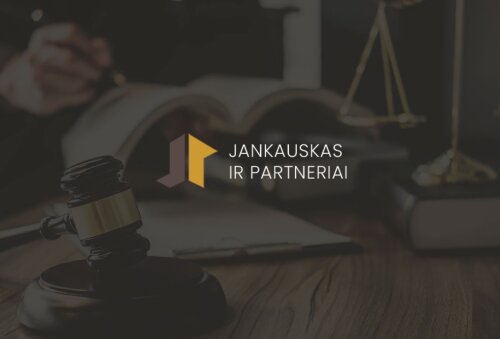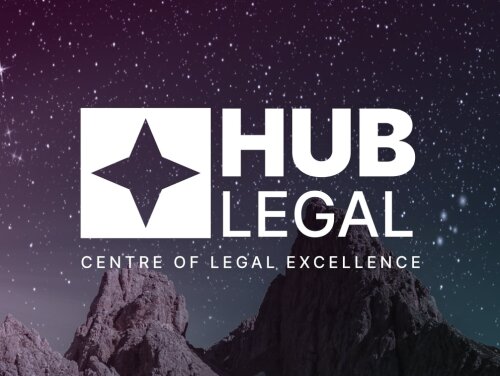Best Mining Law Lawyers in Republic of Lithuania
Share your needs with us, get contacted by law firms.
Free. Takes 2 min.
Or refine your search by selecting a city:
List of the best lawyers in Republic of Lithuania
About Mining Law in Republic of Lithuania
Mining Law in the Republic of Lithuania regulates the exploration, extraction, processing, and management of mineral resources within the country's territory. It encompasses a wide range of legal norms that ensure sustainable and lawful use of natural resources, balancing economic interests with environmental protection. This field of law applies to individuals, companies, and public entities involved in mining, including extraction of minerals like peat, sand, gravel, clay, limestone, and more. The primary aim of Mining Law in Lithuania is to manage mineral resources responsibly while promoting economic development and protecting public interests.
Why You May Need a Lawyer
Seeking legal advice is crucial in various situations related to Mining Law in Lithuania. For individuals or companies aiming to start mining operations, legal assistance is often necessary to navigate the complex application and permitting process. Legal help is also valuable in negotiating mining rights, resolving land ownership or usage disputes, and ensuring compliance with environmental protection regulations. Situations such as government inspections, changes in legislation, or issues related to taxation and royalties may also warrant professional legal assistance. A lawyer can help clarify contractual obligations, defend your interests in administrative hearings, and minimize legal risks.
Local Laws Overview
The legal framework governing mining in Lithuania is primarily set forth in the Law on Earth’s Entrails (Žemės gelmių įstatymas) and related regulations. Some key aspects include:
- Licensing and permits are mandatory for mineral exploration and extraction. Companies and individuals must comply with specific requirements and conditions set by authorities.
- The State retains ownership of most mineral resources. However, mining rights may be granted to natural or legal persons through licenses.
- Strict environmental regulations apply, including requirements for environmental impact assessments before commencing activity and ongoing monitoring obligations.
- Rehabilitation of mining sites after resource extraction is mandatory to ensure environmental restoration.
- Taxes and royalties on extracted minerals must be paid according to government rates, which can vary based on mineral type and volume.
- Disputes related to mining operations or resource rights can be addressed through administrative or court proceedings.
Local municipalities may impose additional restrictions or requirements, especially concerning land use planning and public health.
Frequently Asked Questions
What types of minerals can be legally mined in Lithuania?
Licensed parties can extract various types of minerals, including peat, sand, gravel, clay, limestone, dolomite, and others recognized under Lithuanian law.
Do I need a permit to explore or extract minerals?
Yes, exploration and extraction of minerals require permits and licenses issued by the Lithuanian government. Unauthorized mining is strictly prohibited.
Who owns the mineral resources in Lithuania?
Most mineral resources are owned by the State. Private individuals and companies may obtain rights to use them through governmental authorization.
What are the main environmental requirements for mining operations?
Operators must carry out environmental impact assessments, implement measures to minimize harm, and rehabilitate the mining site following extraction.
Can foreign companies participate in mining activities?
Yes, foreign investors can participate, but they must comply with all Lithuanian legal requirements regarding permits, environmental protection, and taxation.
How long does it take to obtain a mining license?
The licensing process can vary depending on the complexity and type of mining but typically takes several months, including all necessary assessments and approvals.
What taxes or fees are associated with mining?
Mining operations are subject to state-imposed royalties and taxes, which depend on the mineral extracted and the scale of the operation.
What are the penalties for illegal mining?
Penalties include fines, cessation of activities, possible criminal liability, and obligations to restore the affected environment.
Are there obligations after mining activities cease?
Yes, operators must rehabilitate mining sites, restore the environment, and fulfill all post-mining obligations set by law or the permit conditions.
What should I do if my mining rights are disputed?
Seek legal counsel to defend your rights. Disputes can be taken to administrative authorities or the courts for resolution.
Additional Resources
For further information and guidance, consider consulting the following entities:
- Ministry of Environment of the Republic of Lithuania - responsible for environmental regulation and oversight of mining activities.
- Lithuanian Geological Survey - manages geological data and mining licensing.
- State Territorial Planning and Construction Inspectorate - involved in land use planning related to mining.
- Chamber of Commerce, Industry and Crafts - offers support for those starting or operating mining businesses.
- Professional legal associations and law firms specializing in Mining Law.
Next Steps
If you believe you need legal assistance related to Mining Law in Lithuania, begin by organizing any relevant documents and summarizing your situation. Consider consulting a lawyer who specializes in environmental or natural resources law. You may contact local bar associations for recommendations or approach legal firms with experience in mining-related matters. During the consultation, clearly state your objectives and any concerns so the lawyer can provide tailored advice and guide you through the necessary legal procedures.
Lawzana helps you find the best lawyers and law firms in Republic of Lithuania through a curated and pre-screened list of qualified legal professionals. Our platform offers rankings and detailed profiles of attorneys and law firms, allowing you to compare based on practice areas, including Mining Law, experience, and client feedback.
Each profile includes a description of the firm's areas of practice, client reviews, team members and partners, year of establishment, spoken languages, office locations, contact information, social media presence, and any published articles or resources. Most firms on our platform speak English and are experienced in both local and international legal matters.
Get a quote from top-rated law firms in Republic of Lithuania — quickly, securely, and without unnecessary hassle.
Disclaimer:
The information provided on this page is for general informational purposes only and does not constitute legal advice. While we strive to ensure the accuracy and relevance of the content, legal information may change over time, and interpretations of the law can vary. You should always consult with a qualified legal professional for advice specific to your situation.
We disclaim all liability for actions taken or not taken based on the content of this page. If you believe any information is incorrect or outdated, please contact us, and we will review and update it where appropriate.
Browse mining law law firms by city in Republic of Lithuania
Refine your search by selecting a city.















